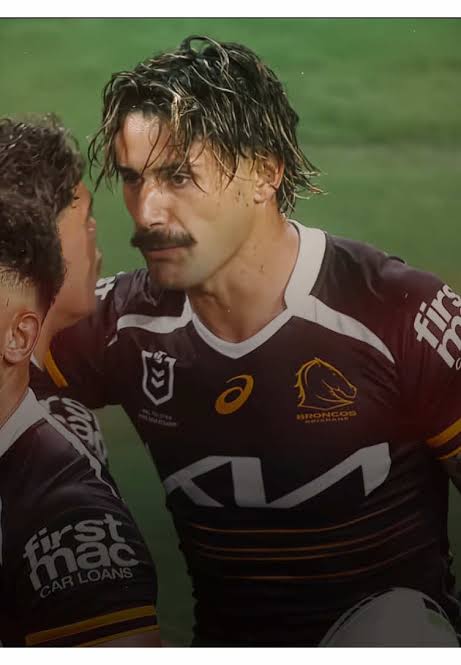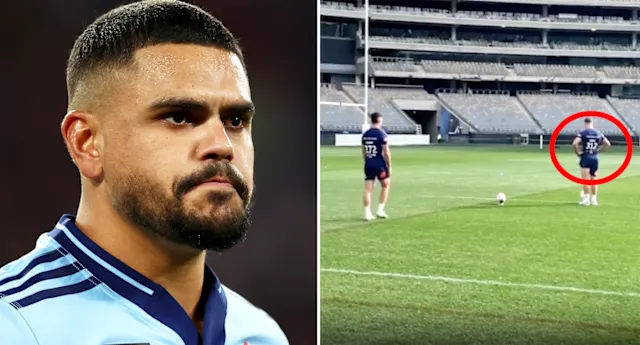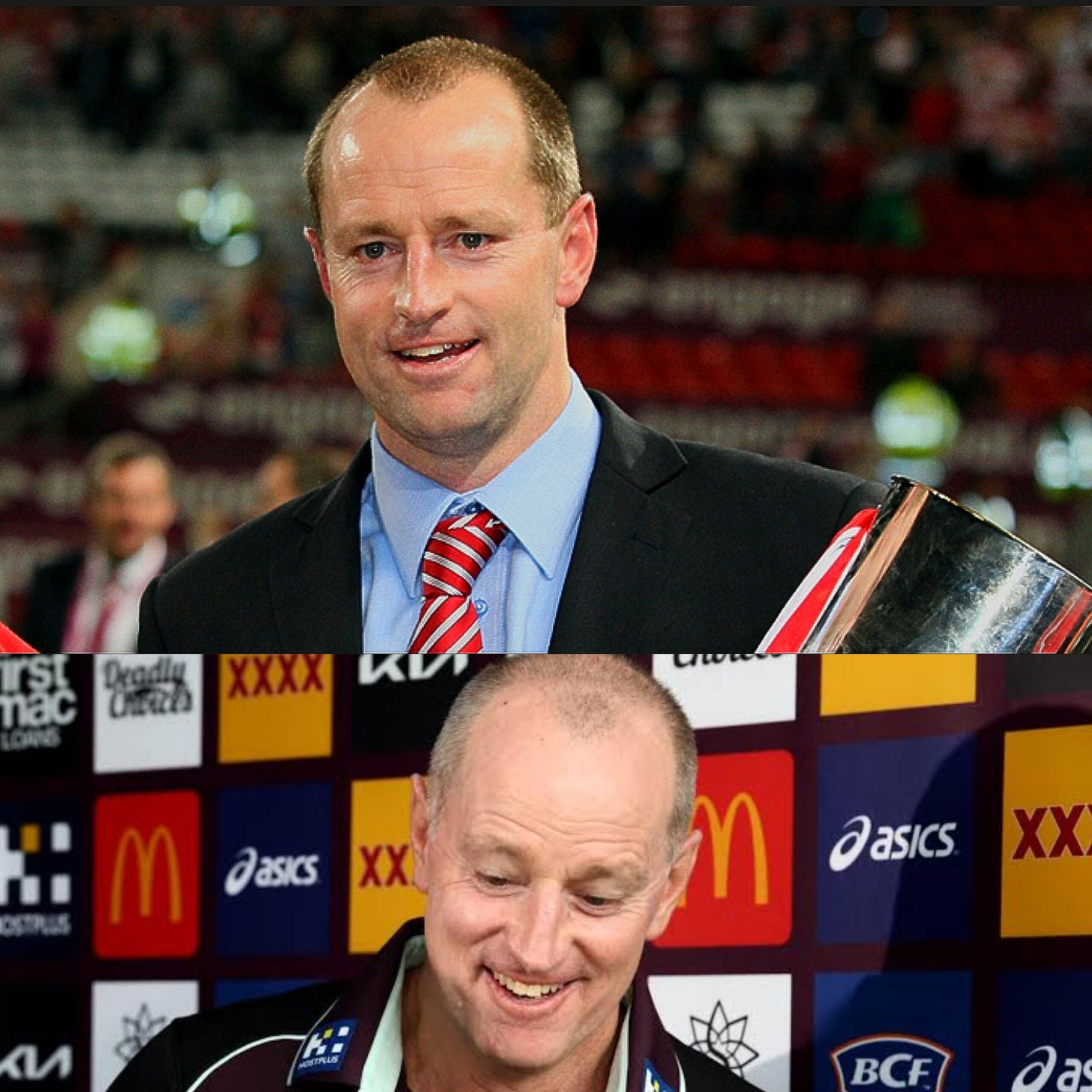“Before and After”: Broncos Star Jesse Arthars Fat-Shamed on Radio — SEN 1170 Sydney & SENQ 693 Brisbane Under Fire After TikTok Clip Goes Viral
Brisbane Broncos winger Jesse Arthars has found himself at the centre of a storm — and this time it’s not on the rugby league field. The 26-year-old NRL star is making headlines for all the wrong reasons after a segment aired on SEN 1170 Sydney and SENQ 693 Brisbane in which commentators appeared to insult and fat-shame him, sparking widespread backlash online.
The controversy erupted after a TikTok video — spliced together with “before and after” photos of Arthars — began circulating on Thursday afternoon. The clip, which included audio from the SEN broadcast, showed the winger in various stages of his career, with hosts making comments about his appearance. The tone, many felt, crossed the line from cheeky banter into outright body-shaming.
The Segment That Started It All
The radio exchange reportedly took place during a midweek NRL discussion segment in which the panel was assessing players’ form and fitness across the competition. While the conversation initially focused on Arthars’ on-field performances, it soon veered into personal territory.
One voice on the recording can be heard chuckling before remarking, “Jesse Arthars — bit of a before-and-after story there, isn’t it?” Another voice chimed in with what many listeners took as a dig at the winger’s physique, suggesting he looked “a little heavier” than in his earlier seasons.
The comments, while brief, took on new life after being paired with side-by-side images in the viral TikTok. The video racked up tens of thousands of views within hours, with fans accusing the SEN presenters of crossing a line and perpetuating harmful stereotypes about athletes’ bodies.
Broncos Fans Hit Back
The reaction from Broncos supporters was swift and unforgiving. Many flooded the station’s social media pages with criticism, calling the comments “disrespectful” and “unprofessional.” Some noted that Arthars had just returned from injury earlier in the year, making any discussion of his body shape particularly insensitive.
“Imagine working your tail off to get back on the field after a layoff, only to have a bunch of radio blokes pick apart your appearance,” wrote one outraged fan on X (formerly Twitter). “Jesse deserves better than this.”
Others pointed out Arthars’ strong performances since returning to the Broncos lineup, highlighting that his try-scoring and defensive work had been pivotal to Brisbane’s recent winning streak. “He’s delivering for the team. That’s what matters — not what number he sees on the scales,” one supporter argued.
Body-Shaming in Professional Sport — A Wider Problem
This incident has reignited debate about body image in professional sport. While athletes are often celebrated for their physical prowess, they also face intense public scrutiny — not just for how they play, but for how they look.
Sports psychologist Dr. Megan Hall told ABC Radio that comments like those heard on SEN can be harmful. “These athletes are human beings. They hear this stuff. And when you reduce someone’s worth to their body shape, you’re not only undermining their confidence, but you’re also setting a dangerous example for young fans,” Hall said.
She added that while media outlets have a responsibility to provide honest analysis of player performance, there’s a difference between critiquing fitness levels in a professional context and making remarks that target someone’s physical appearance for entertainment value.
SEN’s Response
By Thursday evening, SEN had issued a brief statement addressing the growing backlash. “We are aware of comments made during a recent broadcast that have caused offence to some listeners. SEN takes such matters seriously and will review the content in question. Our intent is always to discuss sport respectfully and within the context of performance.”
The statement stopped short of a formal apology, instead emphasising that the conversation was meant to be light-hearted. This lukewarm response has not satisfied all critics, with many calling for the presenters involved to apologise directly to Arthars.
Has Arthars Responded?
As of Friday morning, Jesse Arthars himself had not publicly commented on the incident. The Broncos have also remained tight-lipped, with a club spokesperson saying only that they were “aware of the situation.” Sources close to the team suggested that Arthars was focusing on preparing for the Broncos’ next match, but that the remarks had “not gone unnoticed” in the dressing room.
One teammate, speaking anonymously to the Courier Mail, described the winger as “tough as nails” and unlikely to be rattled by off-field noise. “Jesse knows what he brings to the team. He’s got the boys’ backing 100 per cent,” the player said.
Fans Rally on TikTok and Instagram
In a twist of irony, the very platform that amplified the radio comments — TikTok — has also become the home of a growing wave of support for Arthars. Multiple fan accounts have posted highlight reels of his recent tries, tagging them with messages like “Form speaks louder than words” and “Before, after, always a gun.”
On Instagram, several current and former NRL players have chimed in to defend him. One ex-Broncos forward wrote, “People need to understand — this bloke works harder than most. He’s an athlete, not a model for your approval.”
A Reminder for Media
This episode underscores the evolving expectations on sports media in 2025. While banter and light mockery have long been part of rugby league culture, the public is increasingly drawing a line at comments that target personal appearance, especially when it comes to body weight.
As one media commentator put it: “The game has changed. You can still talk footy, still debate form, still have fun on air — but if your joke makes the story about someone’s body instead of their game, you’ve probably missed the mark.”
Looking Ahead
Whether SEN’s internal review leads to a formal apology or policy change remains to be seen. For now, the incident serves as another flashpoint in the ongoing conversation about respect, mental health, and body image in sport.
For Jesse Arthars, the best response may come where it always does — on the field. If he continues to perform at his current level, this week’s chatter will likely fade into the background. But the debate it sparked about the line between sporting analysis and personal insult isn’t going away anytime soon.



